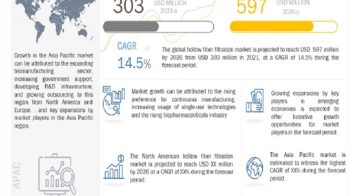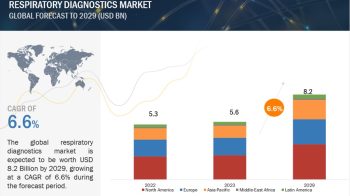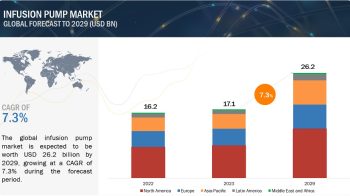According to research report the global Artificial Heart Valves Market is projected to reach $8.86 Billion by 2022 from $4.84 Billion in 2017, at a CAGR of 12.9%.
Download PDF Brochure: https://www.marketsandmarkets.com/pdfdownloadNew.asp?id=245407958
Globally,
the artificial heart valves market is witnessing growth due to factors
such as rising geriatric population and the subsequent growth in the
prevalence of heart valve disease (HVD), regulatory approvals for new
and advanced prosthetic heart valves, increasing government funding for
heart valve research, rising awareness about HVD, and favorable
reimbursement scenario for prosthetic heart valves.
North America to Command the Largest Prosthetic Heart Valves Market Share in 2017
Based
on region, the Prosthetic Heart Valves Market is divided into North
America, Europe, Asia-Pacific, and the Rest of the World. In 2017, North
America is expected to account for the largest share of the global
market. Factors such as the rapid growth in the aging population and
prevalence of valvular heart diseases, favorable reimbursement scenario,
and rising product approvals for heart valves are contributing to the
growth of the North American Prosthetic Heart Valves Market are driving
the growth of the North American artificial Heart Valves Market.
The
Transcatheter Heart Valves Segment Is Expected to Account for the
Largest Share of the Prosthetic Heart Valves Market in 2017
Based
on the type of valve, the artificial Heart Valves Market is segmented
into transcatheter heart valves, tissue heart valves, and mechanical
heart valves. The transcatheter heart valves segment is expected to
command the largest market share in 2017. The large share of this
segment can be attributed to factors such as the rising prevalence of
aortic stenosis, increasing pool of patients owing to approvals for
extended valve indications, and technological advancements. The
preference for transcatheter heart valves is expected to see high growth
in the future as they are implanted through a minimally invasive
procedure while the other valve types require open-heart surgery.
Medtronic
plc (Ireland), Edwards Lifesciences Corporation (U.S.), Boston
Scientific Corporation (U.S.), St. Jude Medical, Inc. (an Abbott
Laboratories Company) (U.S.), LivaNova PLC (U.K.), Symetis SA
(Switzerland), Jenavalve Technology, Inc. (Germany), CryoLife, Inc.
(U.S.), TTK Healthcare Limited (India), Colibri Heart Valve, LLC (U.S.),
Lepu Medical Technology Co., Ltd. (China), and Braile Biomédica
(Brazil) are the prominent players in the global Artificial Heart Valves
Market.
Get Report Sample: https://www.marketsandmarkets.com/requestsampleNew.asp?id=245407958
A number of key players in this market are competing against each other in order to expand their existing customer base. The artificial heart valves market,
by type, is categorized as transcatheter heart valves, tissue heart
valves, and mechanical heart valves. In 2016, Edwards Lifesciences
Corporation (U.S.) and Medtronic plc (Ireland) dominated both, the
transcatheter heart valves and the tissue heart valves market segments;
the mechanical heart valves market was dominated by St. Jude Medical,
Inc. (an Abbott Laboratories Company) (U.S.) and LivaNova PLC (U.K.).


